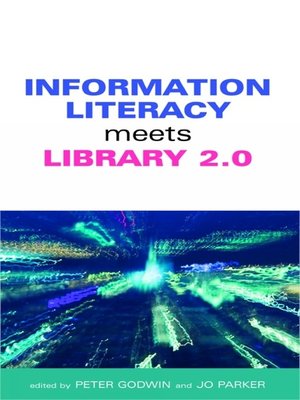
Sign up to save your library
With an OverDrive account, you can save your favorite libraries for at-a-glance information about availability. Find out more about OverDrive accounts.
Find this title in Libby, the library reading app by OverDrive.



Search for a digital library with this title
Title found at these libraries:
| Library Name | Distance |
|---|---|
| Loading... |
Web 2.0 technologies have been seen by many information professionals as critical to the future development of library services. This has led to the use of the term Library 2.0 to denote the kind of service that is envisaged. There has been considerable debate about what Library 2.0 might encompass, but, in the context of information literacy, it can be described as the application of interactive, collaborative, and multimedia technologies to web-based library services and collections.
These developments challenge librarians involved in information literacy with more complex and diverse web content, a range of exciting new tools with which to teach, and a steep learning curve to adjust to the constant change of the Web 2.0 world.
This edited collection from an international team of experts provides a practically-based overview of emerging Library 2.0 tools and technologies for information literacy practitioners; addresses the impact of the adoption of these technologies on information literacy teaching; provides case study exemplars for practitioners to help inform their practice; and examines the implications of Library 2.0 for the training of information literacy professionals.
Key topics include:
Readership: This book will be essential reading for all library and information practitioners and policy makers with responsibility for developing and delivering information literacy programmes to their users. It will also be of great interest to students of library and information studies.







